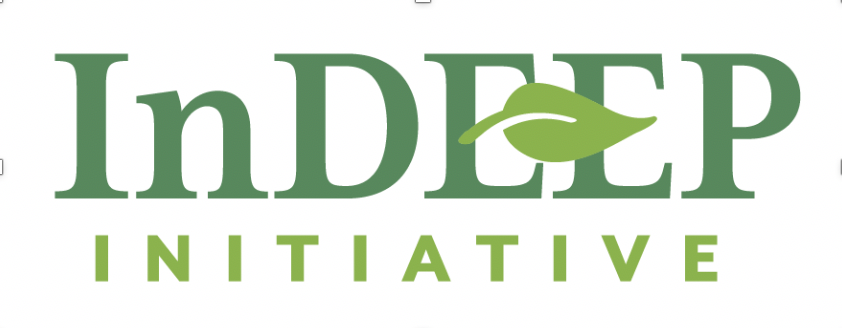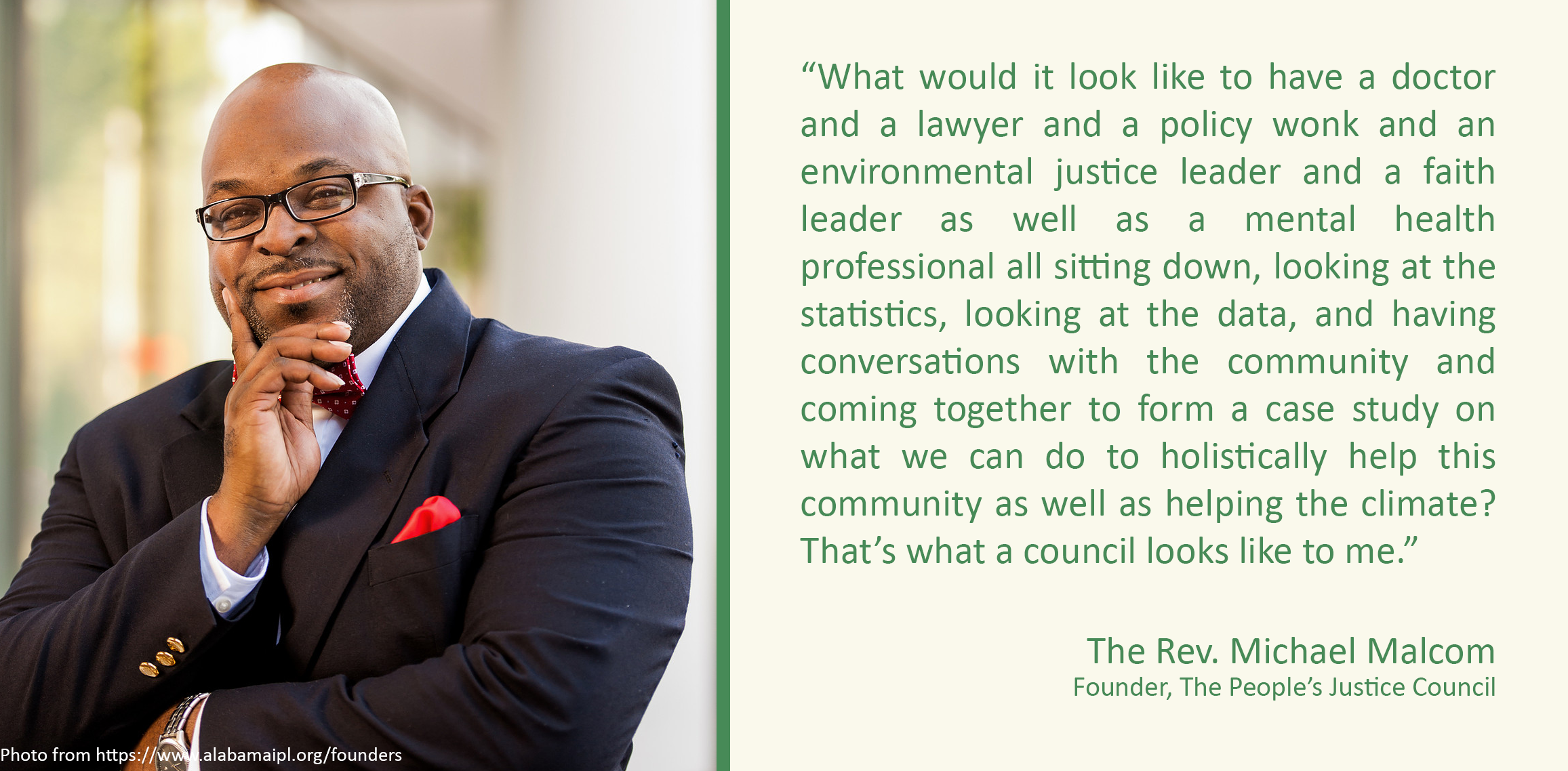The People’s Justice Council (PJC) defines environmental justice as a moral issue. “We’re working with communities of faith to ignitine a moral conversation around energy, climate justice, and racial justice,” said the Rev. Michael Malcom, who founded the organization in 2018.
Read More“Climate is inherently an interdisciplinary field,” said Orion Camero, executive director of SustainUS. Snow melting in the Arctic, mountaintop removal coal mining in Virginia, flooding in the Mississippi Delta region – these are just a few of the many climate-related and environmental issues SustainUS addresses at meetings of the United Nations and the World Bank, among other international groups.
Read MoreRacial equity journeys are different for everyone. Whether early on or later in life, at some point we learn how our backgrounds shape our futures. We can then use those experiences to our advantage and represent those with similar backgrounds who are underserved in any capacity. The same can be said for Joel Espino, transportation equity lead at Wend Collective.
Read MoreBen Davis, Director of Campaigns and Sustainability for Wend Collective, discusses the importance of racial equity in philanthropy and how to read a room.
Read MoreAn old adage states that the definition of insanity is doing the same thing over and over again and expecting a different result. The same can be said for board leadership in environmental philanthropy. For far too long, we’ve seen board trustees fit the same description: White and mostly male. InDEEP, a KHA initiative, proposes a new approach to addressing the lack of Black leadership among environmental organizations.
Read MoreThere is no space in which diversity, equity, and inclusion should not be used as a lens for change. Navigating through this lens can oftentimes be a challenge for many organizations within the environmental, conservation, and outdoor recreation sectors. This is where The Avarna Group thrives.
Read MoreFor a Mexican immigrant navigating US culture, José González of The Avarna Group credits his background and teaching experience with shaping his perspective on racial equity. Growing up with parents who both worked physical labor jobs, he was raised with the understanding that he did not need to follow in their footsteps unless he truly wanted to. This helped shape his definition of what it means to be a professional and search for his calling.
Read MoreWhen it comes to conversations about racial equity, Kim Moore Bailey is more than comfortable – it’s her life’s work. Growing up as a child of Black NAACP (National Association for the Advancement of Colored People) members, the CEO of Youth Outside has always celebrated her Blackness. “I’ve always been doing the work that I’m doing now as it relates to racial equity,” she said. “I just wasn’t always getting paid for it. In fact, I was often told that’s not in your job description.”
Read MorePatrick Gonzales-Rogers, Executive Director of the Bears Ears Coalition, shares his thoughts on racial equity, his career journey, and the role he sees philanthropy playing in addressing racial disparities in the environmental and conservation space.
Read MoreFor this case study, InDEEP team members interviewed four staff members at The Kresge Foundation, an investing funder in the initiative.
Read MoreAngela Glover Blackwell has been in the business of social change for over 50 years. A career that started as a public interest lawyer weaved its way through Blackwell’s creation of the Urban Strategies Council and into philanthropy as a senior vice president for the Rockefeller Foundation before settling into another organization of Blackwell’s own in 1999: PolicyLink.
Read MoreMaya Rockeymoore Cummings has a unique view of U.S. philanthropy and politics. She shares how grantmakers can make true strides toward racial equity.
Read MoreThe McKnight Foundation’s Mark Muller shares how he started with a seedling of interest in racial equity that has grown and bloomed through lived experience.
Read MoreMarselle Alexander-Ozinskas provides insight on some of the challenges and opportunities around racial equity in environmental philanthropy, plus how the InDEEP Initiative helped on her personal journey.
Read MoreThis anthology series is designed to lift up first-person accounts of racial equity journeys that lead to internal change. The InDEEP initiative is a professional development series that engages a network of foundation staff, including senior leaders, committed to integrating racial equity and social justice throughout their environmental philanthropy
Read MoreKeecha Harris and Associates is pleased to introduce a resource guide of sustainable food systems organizations that are led by people of color and Indigenous communities. Support for this guide was made possible by the Mitsubishi Corporation.
Read MoreOn May 28-30, leaders from U.S. foundations gathered for a one-day intensive on racial equity in philanthropy and for the Embedding Equity Community of Practice (EECoP), which centers racial equity as core to systems change and facilitates longer-term transformation across environmental philanthropy.
Read MoreDuring our recent Inclusive Funding Strategies Webinar, Raymond Foxworth, of the First Nations Development Institute, shared seven tips for the philanthropic sector to work more effectively with Native communities.
Read More






